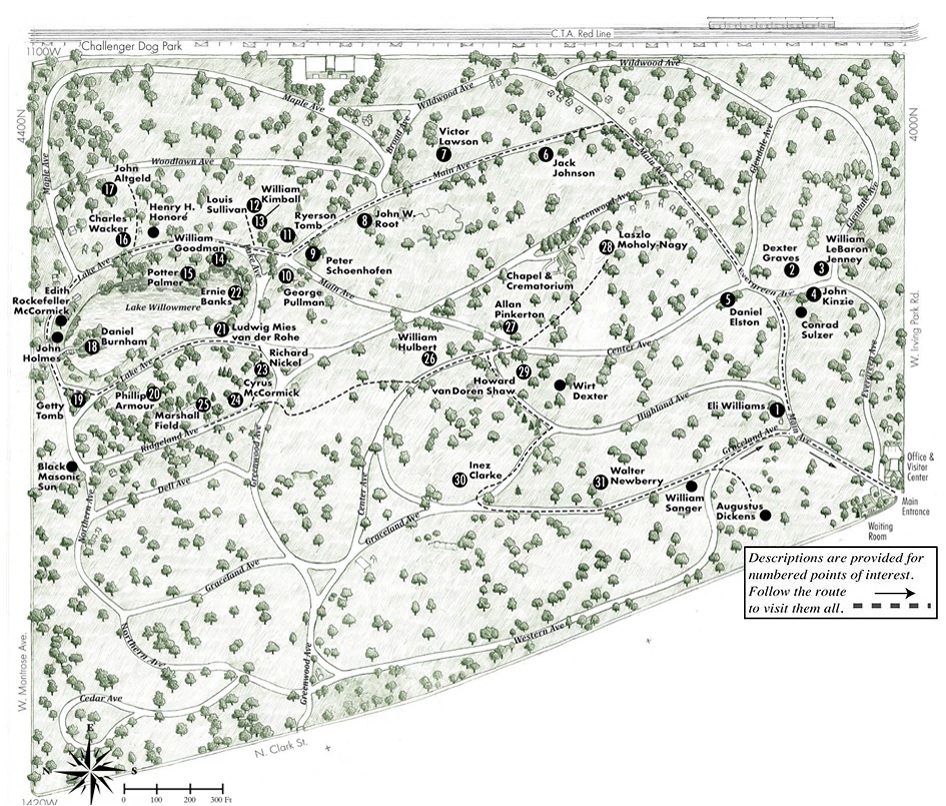Allan Pinkerton
Fun Fact:
In 1861, while investigating a railway case, Pinkerton uncovered an assassination plot against Abraham Lincoln. The conspirators intended to kill Lincoln in Baltimore during a stop on his way to his inauguration. Pinkerton warned Lincoln of the threat, and the president-elect’s itinerary was changed so that he passed through the city secretly at night. Lincoln later hired Pinkerton to organize a “secret service” to obtain military information in the Southern states during the Civil War. In Tennessee, Georgia and Mississippi, he performed his own investigative work and traveled under the pseudonym “Major E.J. Allen.”
Cemetery Information:
Final Resting Place:
Graceland Cemetery
4001 N Clark Street
Chicago, Illinois, 60613
USA
North America
Map:

Grave Location:
Section C, Lot 554, Space 25Grave Location Description
After entering the cemetery, head northeast on Main Avenue for about 750 feet. Then turn left on Center Avenue, and head north for about 720 feet until you reach the intersection. Allan Pinkerton’s grave will be on your right, about 50 feet east from the intersection.





